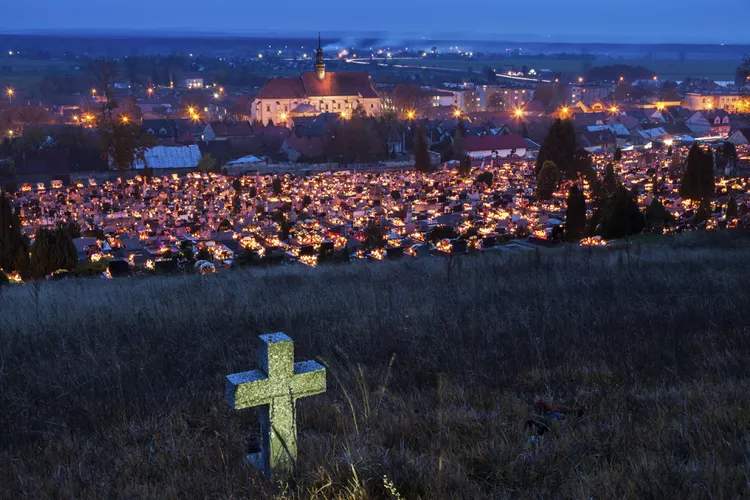Summary of Polish Traditions
Polish traditions throughout the year are immersed in superstitions, rituals, and holiday celebrations. Some are deeply connected to the predominant religion in Poland, Roman Catholicism, while others are derived from ancient pagan rites that celebrate the changing seasons.
When visiting seasonal markets and holiday fairs, individuals can fully experience Polish culture, flavorful cuisine, and an array of souvenir shops that proudly showcase folk crafts and handmade art.
New Year’s Traditions

New Year’s Eve in Poland mirrors the celebrations found in other European nations. Individuals often host extravagant parties, attend private events, or gather in city squares to enjoy breathtaking fireworks displays. Moreover, January 1 frequently features concerts held in auditoriums and carols performed in churches across the country. For instance, attendees in Krakow can experience a special year-opening concert at the Philharmonic.
Drowning of Marzanna

The drowning of Marzanna represents a pagan farewell-to-winter ceremony that occurs on Death Sunday, before Easter. An effigy of Marzanna, the goddess of winter, is carried to the riverbank and cast into the water. Observers witness her “drowning,” symbolizing the end of winter’s hardships, thus allowing for the arrival of spring with its warm weather and natural abundance.
Easter Celebrations

Easter traditions in Poland are both rich in symbolism and filled with enjoyment. Customs include blessed food, beautifully decorated eggs, church services, Easter palms, and vibrant seasonal markets that collectively celebrate this joyous springtime commemoration of faith, cherished traditions, and family gatherings.
Juwenalia Festival

Juwenalia refers to a Polish college festival celebrated in May or early June, ahead of final exams. This festive occasion features colorful parades, engaging contests, lively games, and jubilant parties. Originating in 15th-century Krakow, it has become an eagerly anticipated annual event.
Wianki Festival

The Wianki festival, meaning “wreaths” in Polish, is a celebration of the midsummer solstice steeped in pagan tradition. Wreaths symbolize the cyclical nature of seasons. The Wianki festivities in Krakow are renowned, featuring live concerts, spectacular fireworks, and a bustling annual market.
All Saints’ Day

All Saints’ Day, celebrated on November 1, features the poignant tradition of adorning cemeteries with thousands of glowing candles. On this night, the realms of the living and the deceased converge, as Poles remember their departed loved ones through communal memories, church services, and the flickering candles that illuminate graveyards throughout Poland.
St. Andrew’s Day

Andrzejki, or St. Andrew’s Day, is a time-honored holiday taking place on November 29. It is characterized by traditions of superstition and fortune-telling, where it is believed that a young woman can foresee who she will encounter and fall in love with.
Advent Season

Advent is an essential period for preparing Poles for the Christmas season, involving fasting, prayer, and special church services. During this time, the roraty mass is held for worshippers, starting just before dawn in almost complete darkness. The term “roraty” originates from the opening words of the service, “rorate coeli,” meaning “heaven, drop dew” in Latin.
Mikolaj’s Visit

Mikolaj, the Polish Santa Claus, visits children on December 6. His arrival may occur during Advent church services or on Christmas Eve. He brings along small gifts for well-behaved children, although he may also include a switch as a reminder for those who misbehave.
Christmas Traditions

Christmas is a wondrous season in Poland, where it is said that animals can speak and forgiveness is freely granted to those who have wronged. The Christmas Eve meal, known as Wigilia, is a cherished gathering of family members. Following Christmas Day, St. Stephen’s Day is observed, prolonging the festive celebrations of this sacred holiday.





